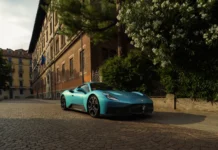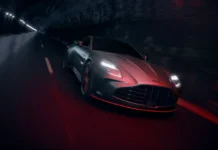What we’re seeing with this Ford Focus news is history repeating itself.
It wasn’t that long ago when you could buy a full range of Ford cars — including a range of sedans and hatchbacks — from your local dealership. While we do still have the Mustang, the Blue Oval has almost exclusively sold SUVs and trucks over here since 2018, dropping notable models like the Taurus, the Fusion and the Fiesta, as well as the Focus. Over in Europe, the story played out a bit differently, because they did get an updated Focus even while American buyers haven’t been able to get a new one for more than half a decade. But the jig is up and the end is near over there too: Ford will officially stop Focus production in November.
When it first hit the scene back in 1998, the original Ford Focus almost immediately won accolades far and wide and became explosively popular as we rolled into the new millennium. Over time, the car evolved through four distinct generations, with the U.S. even getting its own ‘C170’, sedan-only Focus in North America between the 2008 and 2011 model years.
News of its demise hasn’t been terribly surprising, as Ford summarily killed off the Fiesta in 2023 — it too saw one major update past the single generation we got here in the States — and the Mondeo (or Fusion, as we knew it) a year earlier. Ford also announced in 2022 the Focus would eventually follow suit, although it got a slightly longer stay of execution until this year.
While the Focus does still find about 100,000 abroad each year, that’s a far cry from the insane figures Ford managed in the early 2000s, when it sold more than 250,000 units in America…and twice that in the EU. So it’s discontinuing the model for the same reason it killed off its passenger cars over here: They aren’t selling like they used to, and the company is making a pivot toward crossovers and electric vehicles.
To that end, folks walking into a European Ford dealership will get a similar experience similar to what we’ve had for the past seven years. The Kuga (Escape) is a popular option, with its plug-in hybrid version being Europe’s best-seller over the past couple years. There’s also the smaller Puma. As far as EVs, the revived Capri brings a small SUV to the lineup, while a larger option is available in the equally electric Explorer (neither of which we get in the U.S., of course).
Ford’s major investment aims to fundamentally reshape its European business arm
So, there you have it. It’s the end of a 25-year era that spawned models like the Focus SVT and the even hotter RS hatchbacks. Even though Ford is pulling back from passenger cars, it did announce this week that it would invest nearly $5 billion (4.4 billion Euros) to prop up its German subsidiary, bring cheaper EVs to the masses and, more critically to Ford’s long-term fortunes in the region, compete against its Chinese rivals.
With that heavy level of investment, Ford plans to restructure its European operations — which will include cutting as many as 4,000 jobs in the region by the end of 2027. Germany’s trade union, IG Metall, is calling foul at Ford’s decision, saying the company’s plan is a “dirty trick” to faciliate those job cuts by retiring a financial support letter that has been in place since 2006 (per Detroit News). “Without [the letter] Ford Werke GmbH could face insolvency in the next few years if the economic situation does not improve and the parent company in the USA no longer covers the losses,” the union said in a statement. “This is supposed to put pressure on the works council in the most despicable way possible, in order to agree to the planned operational changes.”
Ford declined to officially comment on the statement, but said in its announcement earlier this week that it invested $2 billion in its Cologne, Germany plant (a plant IG Metall says is in “acute danger” with major job cuts on the horizon), to build EV crossovers like the Explorer and Capri. The union is supposed to enter into collective bargaining with the automaker before Christmas.
































